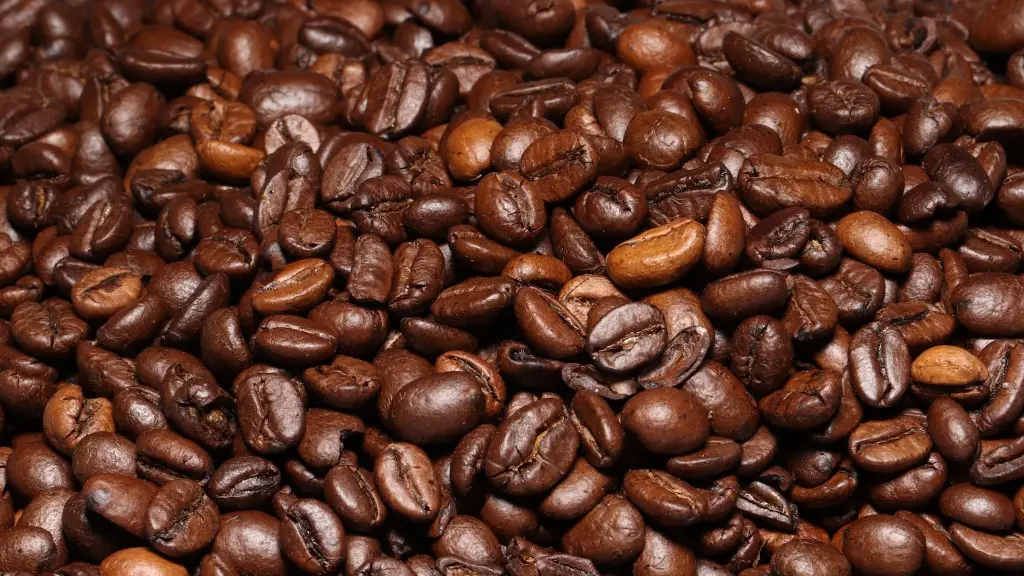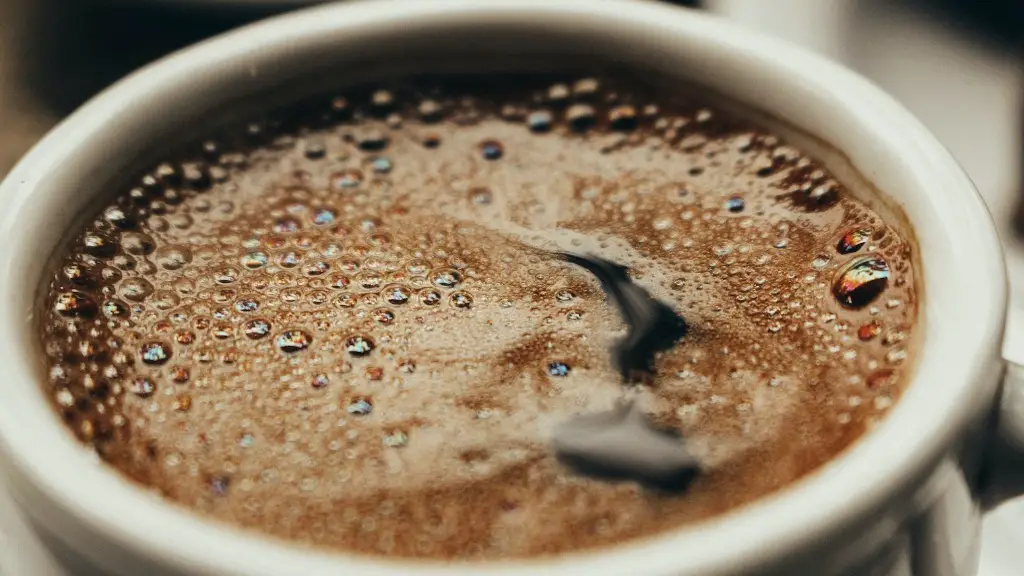Coffee is one of the most popular drinks in the world. It’s a great way to wake you up and fuel your morning, but why do many people find themselves feeling hungry shortly after drinking it? To understand why this happens, we need to take a look at the science behind coffee and how it interacts with our bodies.
When we drink coffee, the body releases dopamine and adrenaline. These hormones help to give us a feeling of alertness and energy, but they also temporarily suppress the production of leptin, the hormone that signals to our brain when we’re full. As a result, people often feel the need to eat more food than normal, leading to a feeling of hunger.
The effects of caffeine can also affect how our body metabolizes carbohydrates. Caffeine can stimulate the release of stored glycogen in the liver, which is then sent to the bloodstream as glucose. This can lead to a ‘sugar crash’ which causes a feeling of hunger, even after a small amount of coffee.
Furthermore, coffee often contains additional ingredients, such as sugar and cream, which can affect how quickly we feel full. These ingredients can cause a spike in blood sugar levels, leading to increased hunger shortly after drinking the coffee.
In addition to its physiological effects, coffee can cause psychological cravings. Coffee can be seen as a ‘comfort food’, with many people associating it with energy and productivity. When we consume coffee, we’re often unconsciously looking for the same feelings of comfort and pleasure that come from eating food. This can lead to an increase in appetite, as our bodies are conditioned to expect something in return for drinking the coffee.
Ultimately, feeling hungry after drinking coffee is perfectly normal. Our bodies are wired to respond to the various chemicals and flavors in coffee, leading to a combination of physiological and psychological hunger cues. But, it’s important to remember that we don’t always need to satisfy this hunger with food. By remembering to stay hydrated, having healthy snacks on-hand and engaging in mindful eating, we can make sure that our coffee cravings don’t take control of our lives.
Impact of caffeine on the body
Caffeine is the main active ingredient in coffee, and it has been proven to have a number of effects on the body. It acts as a stimulant, increasing alertness and energy levels, although it can also lead to feelings of restlessness and anxiety. Caffeine can also cause the body to release stored fats and sugars, leading to increased energy levels and a feeling of hunger.
Caffeine can cause the body to produce more adrenaline and cortisol, which are hormones associated with the fight-or-flight response. This can lead to a form of heightened arousal, causing us to crave food as a means of comfort and reward. Furthermore, caffeine is a diuretic, meaning it increases the production of urine, which can lead to dehydration, physical fatigue and increased hunger.
Finally, caffeine can affect the brain’s reward system, prompting the release of dopamine and endorphins. These hormones are responsible for feelings of pleasure and reward, and can lead to increased cravings for food. So, it’s no wonder why many of us feel hungry after drinking coffee.
Effects of other ingredients
In addition to caffeine, many types of coffee also contain other ingredients which can affect how quickly we feel full after drinking it. These include sugar, cream, and other sweeteners and flavorings.
Sugar and cream can cause a spike in blood sugar levels, which can lead to a surge in energy followed by a crash. This can make us feel incredibly hungry, even after a small cup of coffee.
Furthermore, these ingredients can act as a substitute for food. Many people use flavored coffees to satisfy cravings for sweets and desserts, but this can cause us to eat more than we need, leading to increased hunger and overeating.
Finally, it’s important to remember that coffees made with synthetic ingredients, such as artificial sweeteners, can actually increase our hunger. These ingredients have been found to stimulate our appetite, leading us to eat more than we would normally when drinking natural coffee.
Controlling hunger after coffee
Fortunately, there are a few things we can do to help reduce the feeling of hunger after drinking coffee. Firstly, it can be helpful to drink coffee with a meal, or to have a light snack alongside it. This can help to prevent the sudden dip in blood sugar that can occur after drinking coffee, as well as making us feel more full throughout the day.
It’s also a good idea to avoid adding too much sugar or cream to your coffee. While these can make the drink more enjoyable, they can also lead to increased hunger levels. Instead, opt for natural sweeteners such as honey or coconut sugar, and try adding almond or oat milk instead of cream.
Finally, it can be helpful to engage in mindful eating. Take time to savor your coffee and identify the flavors and smells. Pay attention to your body’s cues, and try your best to resist the urge to eat more food than you need. This can help to control the hunger response and can prevent overeating.
Coffee and weight loss
Finally, it’s important to address the question of whether or not coffee can help with weight loss. There are a number of ways in which coffee can help with weight management, such as suppressing the appetite and boosting energy levels. However, it is important to be aware of how your body responds to coffee, and to make sure you’re eating a balanced diet.
Coffee can be a great source of antioxidants and is known to have numerous health benefits. However, it’s important to keep in mind that it can lead to feelings of hunger, and that drinking too much can have an adverse effect on your health.
Ultimately, the key to successful weight loss is making sure that you’re staying hydrated and eating a healthy, balanced diet. Coffee can be a part of this healthy lifestyle, but it is important to be aware of how coffee affects your body and to make sure you’re eating enough to keep your body fueled.
Mindful coffee drinking
When it comes to managing hunger after coffee, it’s important to take a mindful approach. Pay attention to your body’s signals and try your best to resist the urge to overeat. You should also try to opt for natural, unsweetened coffee and to eat something alongside it to help keep your hunger at bay.
It’s also a good idea to practice mindfulness by taking time to appreciate and enjoy your coffee. Pay attention to the flavor and aroma, and try to slow down the drinking process. This can help you to better recognize when you’re full and reduce the feeling of hunger after drinking coffee.
Finally, it is important to be mindful of your caffeine intake. Drinking too much coffee can lead to feelings of restlessness and anxiety, and can disrupt your natural sleep cycle. So, it is important to be aware of how much caffeine you’re consuming and to stick to a moderate amount.





